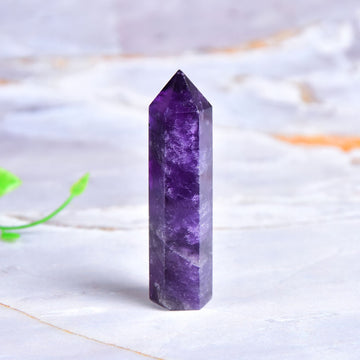While some people work perfectly in chaotic and messy environments, others want things to be neat and meticulous to function properly. However, some research may suggest that the role of clutter in our mental well-being is much more prominent than you may think. According to a study by UCLA’s Center On Everyday Lives and Families, the relationship between clutter and stress is chemical. The study demonstrated that women who live in cluttered houses have higher levels of the stress hormone cortisol than average.
Another study conducted by Princeton University showed that working in a physically cluttered environment can negatively affect your ability to focus and process information, leading to anxiety. Psychologists also agree that clutter can be a significant source of stress for some people.
Psychologist Sherrie Bourg Carter, who writes for Psychology Today, says that a messy home and/or work environment leads to more anxiety and in some cases, the clutter itself might be ‘a significant source of stress.’ She adds that eight main components contribute to clutter causing stress.
Firstly, clutter causes an abundance of stimuli from the external world whether it is through sight, sound, smell, touch, or taste. Sherrier explains that this causes "our senses to work overtime on stimuli that aren’t necessary or important."
Secondly, clutter takes away your attention because you're no longer focusing on your goals or task at hand and instead you need to take time to focus on the clutter.
The third component, according to Sherrie, is that clutter makes it hard for you to sit back and relax. Whether you have to clean the mess yourself physically or whether it be mental taxation on the mind, clutter makes it hard for you to relax.
The fourth reason has to do with the fact that clutter sends signals "to our brains that our work is never done."
Also, because of the clutter and the mess, clutter causes your brains to think that you are never finished when in reality, you could've done all your work! Clutter can also cause anxiety if you don't know exactly where things are, and you are unsure "what it’s going to take to get through to the bottom of the pile."
Sixth, clutter causes mixed emotions in some of us. For those who need an organized and clean house or workspace, seeing clutter might cause feelings of guilt or embarrassment.
Seventh, open spaces (which are free from clutter) allow us to be both creative and productive. A lack of open space prevents creativity and productivity which is necessary for thinking, brainstorming, and problem-solving.
Finally, clutter can cause emotions of frustration or even anger since you can get agitated when you can’t find what you need amidst the mess and clutter.
However, Sherrie also comes forth with suggestions to declutter and de-stress: "tackle de-cluttering as a family. If clutter has invaded your entire house, don’t tackle the job alone. Get the whole family involved by starting with a room everyone uses and making each person responsible for a section.
If you’re on your own, start with one area at a time and finish de-cluttering that area before moving on to another. This will give you a sense of accomplishment as you see your successes little by little."
She adds: "create designated spaces for frequently used items and supplies so that you can quickly and easily find what you’re looking for when you need it. However, try to make these designated spaces “closed” spaces, such as drawers and cabinets. “Storing” things on open shelves or on top of your desk does not remove those visual stimuli that create stress and lessen the amount of open space that your mind 'sees.'
Need stress relief? Using Baoding balls will activate the pressure points in the hand to increase the flow of internal energy.
This article Living In A Messy And Chaotic Environment Really Causes Stress was published on Thinking Humanity and it is re-posted here under a Creative Commons Attribution 3.0 Unported License



































